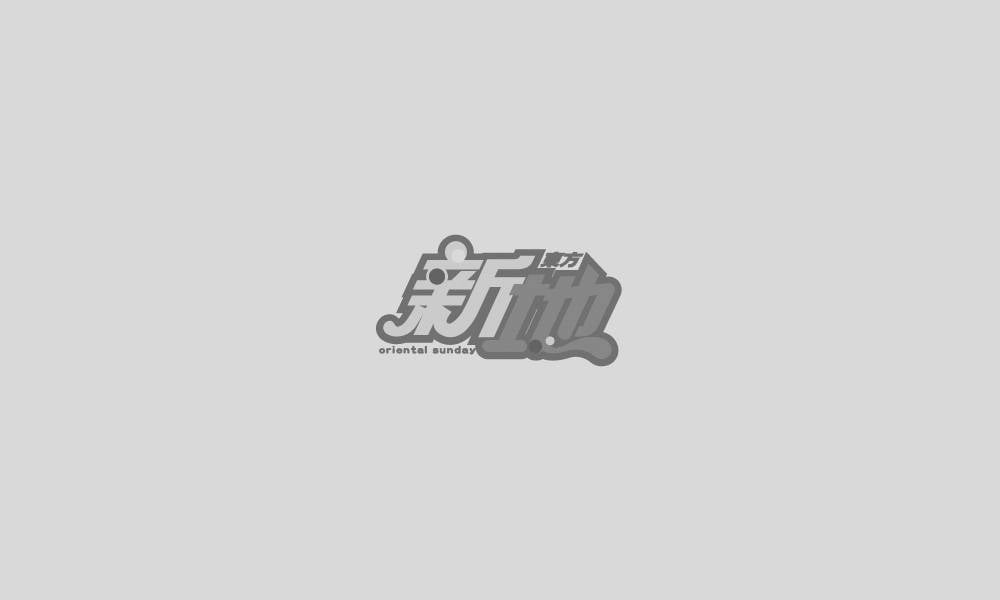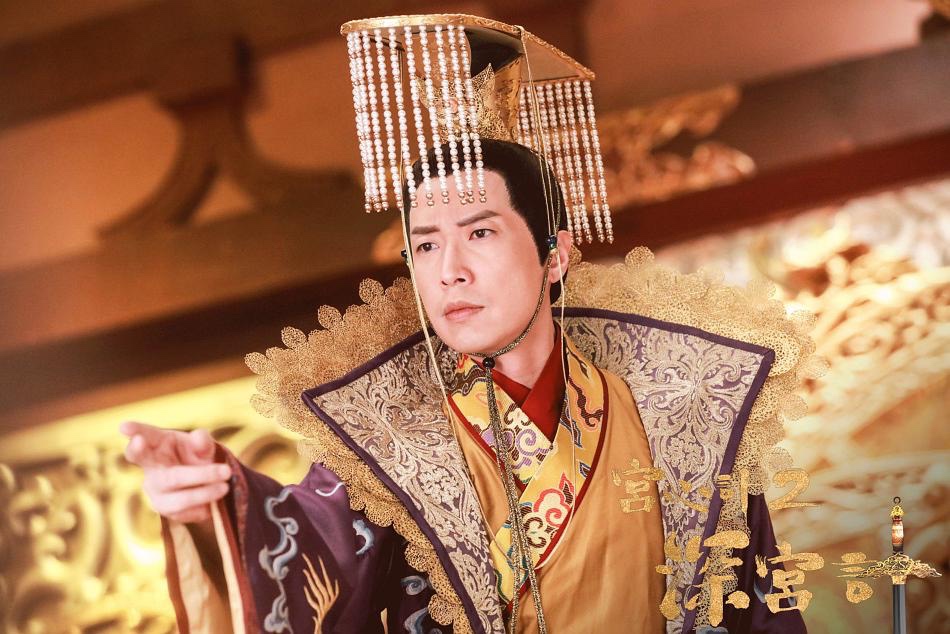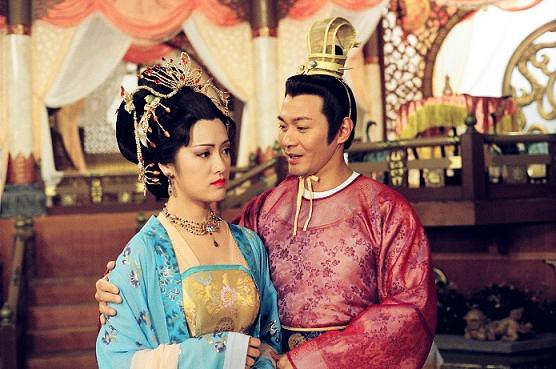
Emperor Xuanzong of Tang (唐玄宗) was the ninth emperor of the Tang Dynasty. He presided over one of the golden ages of the Tang Dynasty during his first three decades on the throne, but also saw the beginning of the dynasty’s decline in his later years. His reign of 43 years is the longest of any Tang emperor.
Xuanzong was the third son of Emperor Ruizong (唐睿宗). Although Ruizong was nominally the emperor, the real power resided with the empress dowager Wu Zetian (武則天). When Xuanzong was five, his father abdicated in favour of Wu Zetian, who officially became female Emperor. Growing up, Xuanzong was reportedly a talented and courageous young man and was adored by his grandmother.
When Xuanzong was twenty, Wu Zetian was overthrown in a coup and Xuanzong’s uncle, Emperor Zhongzong (唐中宗) retook the throne. However, power was concentrated in the hands of his wife, Empress Wei (韋皇后). When Zhongzong died, his 16-year old son ascended to the throne as Emperor Shang (唐殤帝), with Empress Wei acting as regent. Fearing that Empress Wei would usurp the throne like Wu Zetian, Xuanzong and his aunt, Princess Taiping (太平公主), launched a coup. They killed Empress Wei and executed many of her allies. They forced Emperor Shang to step down just 17 days into his reign and convinced Xuanzong’s father, Ruizong, to reclaim the throne. For his efforts in the successful coup, Xuanzong was named as crown prince.
During his time as crown prince, Xuanzong's relationship with his aunt, Princess Taiping, became increasingly hostile. Princess Taiping had initially supported him to be crown prince because she thought he could be easily manipulable, but when she discovered that this was not the case, she tried to have him removed as crown prince. However, much to her chagrin, Ruizong decided the best way to resolve the hostilities was to abdicate and pass the throne to Xuanzong.

After ridding the court of Princess Taiping's influence, Xuanzong was finally able to rule on his own. He proved to be a capable ruler, leading the country into a golden age of prosperity. Politically, he brought stability to the court after decades of infighting and coups within the palace. He promoted competent officials to be his advisers and purged the government of officials who gained their positions through money or connections. Economically, Xuanzong re-established trade routes on the Silk Road and Grand Canal and ordered for a nationwide census to be conducted to update the tax rolls and improve land distribution. These measures vastly increased the nation's tax revenues and grain reserves. Militarily, he abolished the conscription of farmers. Instead, he recruited career soldiers for the army. He reorganized the border forces to centralize control under military governors and improve border defense. Culturally, he commissioned officials to search for literature from all eras, compiling a library with more than 50,000 works. A talented poet, calligrapher and musician himself, Xuanzong created academies to promote the arts. Two of most famous Tang Dynasty poets, Li Bai (李白) and Du Fu (杜甫), lived during this period.
 |
| Xuanzong (Kwong Wah) and Yang Guifei (Anne Heung) in The Legend of Lady Yang |
Meanwhile, An Lushan (安祿山) was a military general who had gained the favour of Xuanzong and Yang Guifei. He was given command over three large military contingents in the north, where he essentially operated as a warlord. However, he harboured higher aspirations. After many years of planning, An launched a rebellion near modern-day Beijing. Due to Xuanzong's earlier military reforms, most of the Tang army was stationed near the borders, leaving the country's interior lightly defended and allowing An's forces to easily make their way into the heartland. An captured Luoyang, the eastern capital, and declared himself emperor of a new Yan Dynasty. After a series of military missteps by Xuanzong, the path was clear for An to march to Chang'an, the western capital, where the emperor was located.
As An's forces approached, Xuanzong fled the capital with Yang Guifei. Along the way, the soldiers that were accompanying the emperor grew angry at the Yangs, whom they felt were responsible for the country's plight. The soldiers killed Yang Guozhong, then surrounded the emperor and demanded that he put Yang Guifei to death. In order to pacify his angry troops, Xuanzong reluctantly ordered his personal eunuch to strangle Yang Guifei.
After Yang Guifei's death, Xuanzong continued westward, while his son, the crown prince, stayed behind to plan a counterattack. On the advice of his officials and without consulting with Xuanzong, the crown prince took the throne and declared himself as Emperor Suzong (唐肅宗). When Xuanzong received this news, he affirmed the new emperor's proclamation and took the title of Retired Emperor. After Emperor Suzong recaptured Chang'an, Xuanzong moved back to the palace, where he lived until his death at the age of 76.

No comments:
Post a Comment